Posts tagged “process”
Field Report #9: Excerpting Instead of Processing
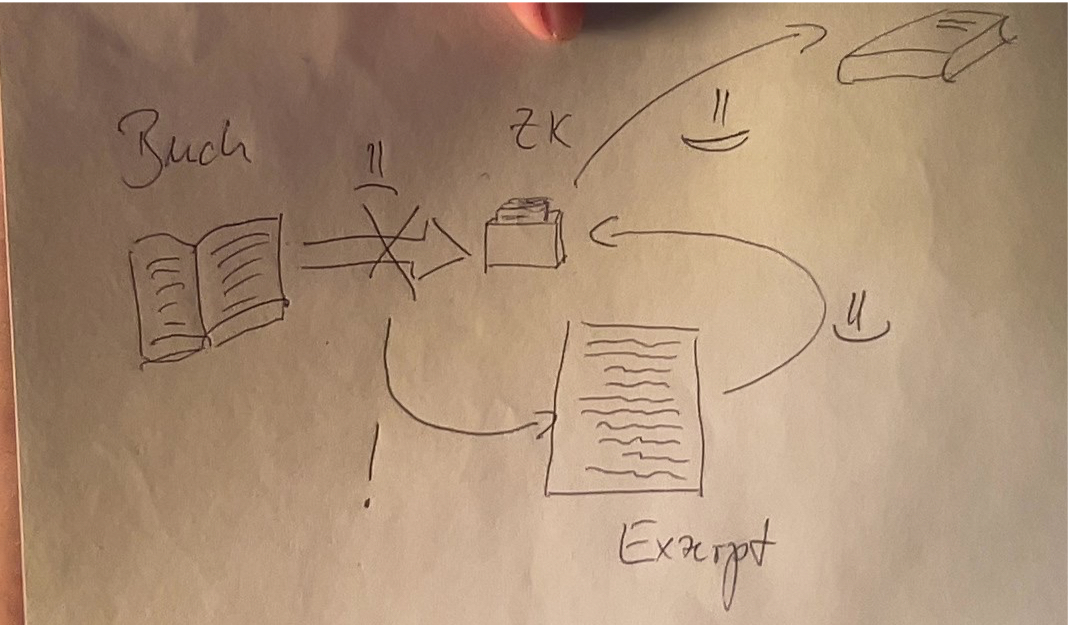
When I processed Transcend by Kaufman, I encountered the following problems: Lack of authority: The book is not a book for me whose structure I want to follow. It is not valuable to me as a whole, but only as a collection of parts.
Field Report #8: How I Process a Chapter of a Book
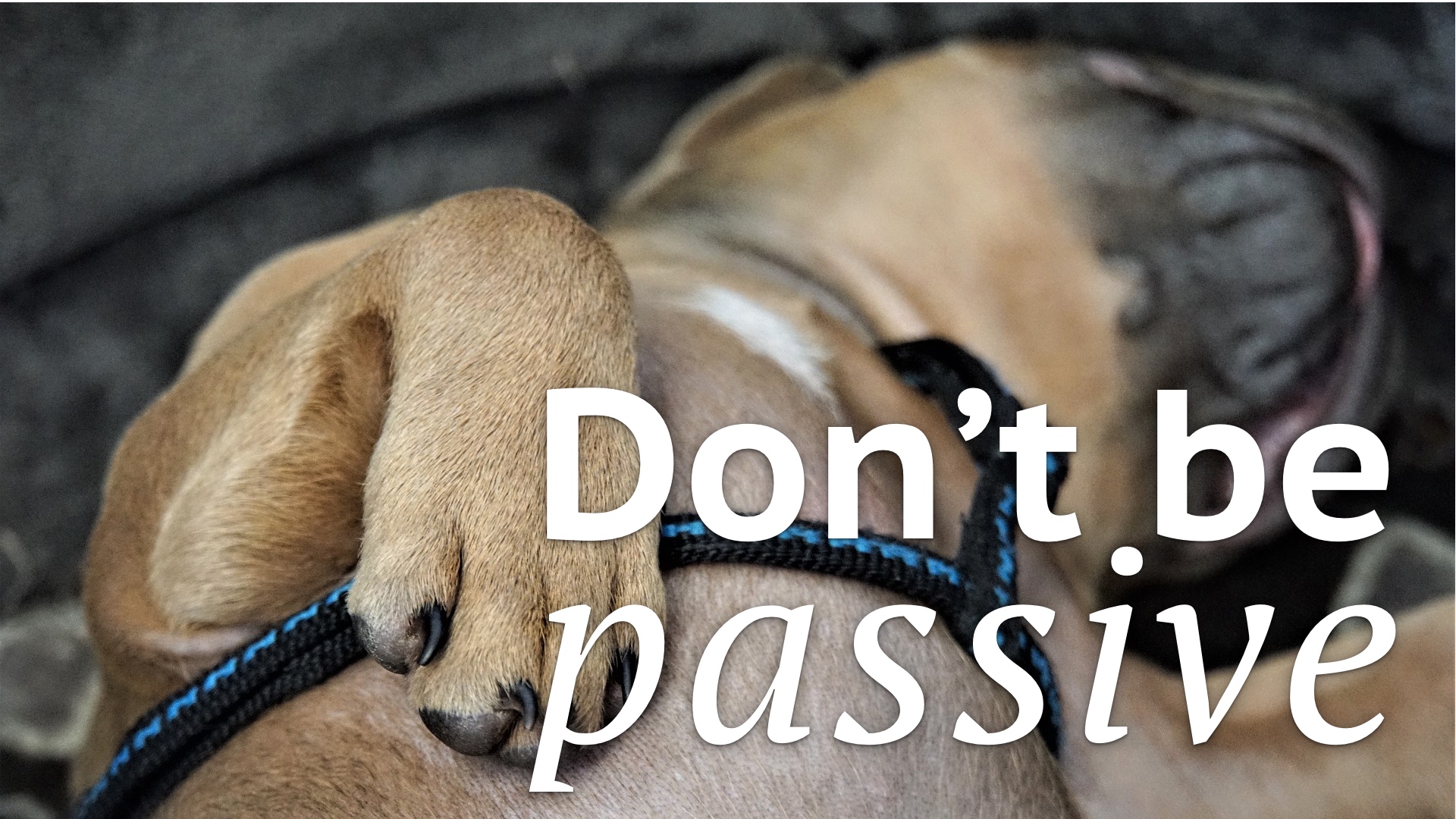
At the moment of writing this, I process the chapter “reward” from the book “Good Habits, Bad Habits” by Wendy Wood. The steps are: Review the chapter and my highlights. I have read it already and added highlights. Decide what I can build from this chapter. I start a short-term project to build a structure note on “reward”.
Every Step in the Process Must be Knowledge-Based Value Creation

“The Zettelkasten Method is so labor-intensive. I don't have time to also maintain a Zettelkasten.” -- This, or something like it, is a regular concern when people engage with the Zettelkasten Method. And with good reason, because on the forums and Reddit you can see that care and maintenance seems to be a big part of the Zettelkasten Method. That's a problem of the implementation.
The Zettelkasten Method for Fiction III - Create a Toolbox to Analyse Stories that Live in Your Zettelkasten

In the first part, we learned not to care about the source of the knowledge we deal with, but about its nature. In the second part, we learned what we are dealing with when we deal with story. So, how do we actually deal with story material using the Zettelkasten Method?
The Zettelkasten Method for Fiction II – Collecting and Processing Building Blocks of Story

In part 1 we concluded that knowledge is knowledge, independent of its source. Applying the Zettelkasten Method to fiction books does not change anything if we are dealing with knowledge. But if you want to use the Zettelkasten Method to analyse a story as a story? Then you need to know what to look for besides knowledge.
The Zettelkasten Method for Fiction I – Knowledge is Knowledge
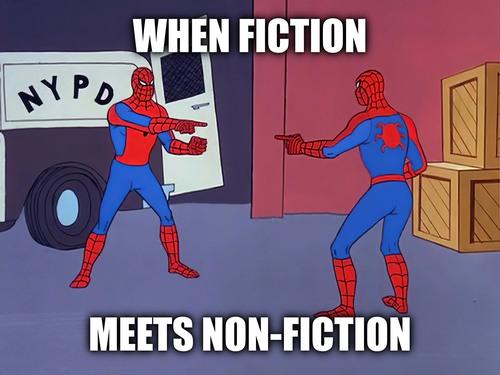
Quite frequently, the question how to make the Zettelkasten Method work for fiction arises. The simple answer is: There is no need to modify the Zettelkasten Method because it only provides the overarching architecture for your notes and their connections. If your sources are fictional or non-fictional is just a question of the content your notes hold.
Processing Empirical Studies and Separating the Three Layers of Evidence
In case you missed this on our YouTube channel, here’s a 15min video explaining how to process empirical studies and the three layers of evidence: (Link to the video: https://www.youtube.com/watch?v=UkA6ymlDLtA)
Q&A #5 - How to write good titles for your Zettelkasten
Today’s video: 3 tips to improve your note titles. Consider the content, and the main thought of the note.
All notes are malleable: Strive for permanently useful notes, not permanently unchanging notes

Here’s a highlight from the forum from recent days. User @zappino4 asked: I am trying to understand the relationship between literature notes and permanent notes. My doubts are the following:
Leave Breadcrumbs on Bookmarks for Your Future Self
A little trick from my desk: You can rarely process a book in one session. The question is how to continue from where you stopped the next time you pick up the book. If you use a slip card as a bookmark, there is a neat solution for you: Just write a hint on the slip card. Take a look at this example (annotated because most of you neither speak German nor can read my scribbles comfortably):
Image Capturing with the Archive App (Video)
Handling images can be quite tricky in knowledge work. The Archive gives you the technical premise to create your own workflow. Watch the video.
Book Processing Workflow (Video)
Today, Sascha talks about his workflow of processing books. The demonstration is supposed to highlight the power of a useful search – in opposition to overly fancy software features. At about minute 22:00, Sascha also demonstrates using The Archive for this in all its buggy glory.
Zettelkasten Live Ep. 3: Collaboration Using the Method, plus Zettel Extraction Demos
In today’s episode we had a lot of interaction with you, dear readers and listeners and watchers. Thanks for being great! Here are some show highlights: Peter K. asked: How do you use your Zettelkasten setup for collaborative work? (That’s roughly the first 30 minutes.)
Reader Question: Why Not Use a Plain-Text Wiki?
Sujith Abraham asks on YouTube: Why did you choose nvALT, where you have to create manual links so that you can search and find which other notes ‘backlinks’ to other notes, instead of a wiki (like DokuWiki, Tiddlywiki) where this would be provided automatically along with the benefit of plain-text writing/storage.
When Should You Start a New Note?
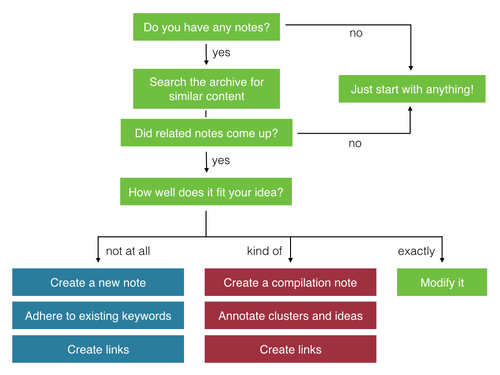
Say you start with a fresh Zettelkasten or you learn more about an existing topic. You write your note and expand the text – and then you ask yourself this: should I create a new Zettel? Should I split this up? Can I attach this detail there? Finding an answer is pretty easy as the scenarios are limited:
Listen to Schopenhauer: Reading Is Only Part of Becoming a Thinker
Found this nice piece on Farnam Street on Schopenhauer and writing.
In it, Shane cites Schopenhauer thusly:
When we read, another person thinks for us: we merely repeat his mental process. It is the same as the pupil, in learning to write, following with his pen the lines that have been pencilled by the teacher. Accordingly, in reading, the work of thinking is, for the greater part, done for us.
That’s not much of an invitation: if you read, you don’t think for yourself.
Fittingly, Shane rephrases Schopenhauer’s point in this way:
We need to digest, synthesize, and organize the thoughts of others if we are to understand. This is the grunt work of thinking. It’s how we acquire wisdom.
Reading alone doesn’t cut it. Reflecting is important.
Now guess what the Zettelkasten Method helps you do. Part of the knowledge cycle is to take the inspiration from a text and transform it into knowledge, which is acquired through a process of constructing. Don’t stick to the exact words of the author and try to memorize them. Write something on your own.
From Reading to Zettel Notes: Dan Sheffler's Workflow for a Doctoral Thesis in Philosophy
Welcome to the bright side of blogging: being part of a discourse!
Dan took some time to write about his workflow, how to get from reading to Zettel notes. (I posted about his setup earlier this week.)
I think the main takeaways of his post are the following and remind us of the foundational principles of bullet-proof knowledge management:
- Separate capturing notes from feeding your long-term archive.
- Take notes immediately: when you have a thought, capture it, no matter how. Do it in your own words.
- While processing your notes, focus on the principle of atomicity. Capture a single idea per note.
- Connect notes heavily.
Dan’s screenshots of Zettel notes in Sublime Text about his doctoral thesis in philosophy convey how you can tackle complex problems in the long term.
About a third of his example seems to be made up of annotated connections to other notes. As you can see in the “mini map” of his note in the upper right, his Zettel is quite long. That’s just fine.
Most of our recommendations sound like you should avoid anything longer than a paragraph. But brevity is quite ambiguous a term. I can imagine Dan is keeping it brief but the material is so vast he’s just adding more and more valuable references and connections to the note.
Writing a doctoral thesis often requires you go deep, and going deep will inevitably result in more details and more references to back up your argument and interpretation. Don’t chop off half of it only because you don’t like scrolling.
Make sure to check out the comment thread where Dan’s post originated.
My Collector's Fallacy Confession
Last week, I found out how large my backlog of unassimilated information really is. (Spoiler: it is huge.) Sascha and I share a small apartment and recently re-arranged some furniture. Both of us had to empty our bookshelves so we could move the furniture around. Only a week later did I finish actually reordering the books and using my bookshelf again.
Reading Habits: Putting It All Together

I am moving next month, and so I though about getting rid of stuff in my life. There are lots of books I’ve read, but from which I never processed all the notes. I know for sure that at I finished least one book in the collection about two years ago! You see, I was, and still am, vulnerable to the Collector’s Fallacy. While I try to get through the pile of books, I reviewed my reading process. This is a summary where I put together some of the topics I already wrote about
You Only Find What You Have Identified

I want to answer the question: Why are unique identifiers useful when you work with a Zettelkasten? The objective of a Zettelkasten note archive is to store notes and allow connections. Both are necessary to extend our mind and memory. As long as the software you use doesn’t provide any means to create links between notes, you have to come up with your own convention. Even if the software did provide such a mechanism, I’d suggest you think twice about relying on it: I want to evade vendor lock-in for my Zettelkasten, and I think you should, too. So let’s assume you don’t care about the software and create your own hyperlink scheme.
Learn Faster by Writing Zettel Notes

As a knowledge worker, you have to learn a lot in your field. The internet is full of information, and there’s the books you just have to know in and out. How do you speed up the process and learn efficiently? Scott Young learned linear algebra in 10 days due to a very efficient method. It works for other fields of knowledge as well. The “Drilldown Method” consists of three stages:
Create Zettel from Reading Notes According to the Principle of Atomicity
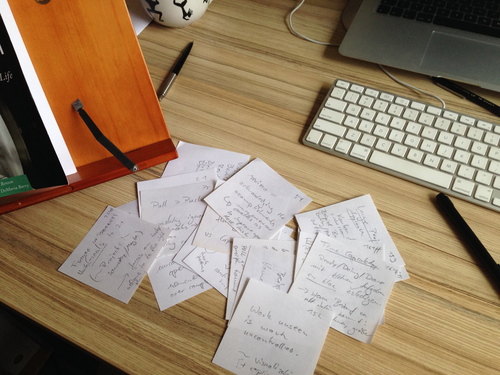
As I said in my last post, my reading workflow consists of GTD-like phases: collect, process and write. While I wrote about collecting before, this post is about the three phases of processing notes. In the last section you’ll find a few example Zettels I wrote.